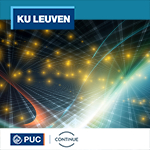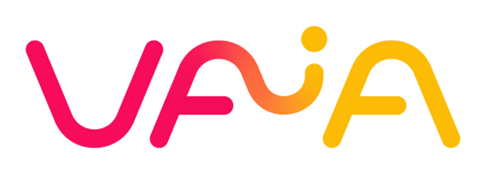The course consists of three modules of one day each (12-19h). Namely:
- Data storytelling
- Data visualization & interactive graphics
- Dashboards & structured data
Module 1 (5 November): Data storytelling
- Interactive Theory & Practice
- Exploratory Data Analytics (EDA) with Python/Pandas/Spark and/or Spark SQL
- Data tools, technologies, industry best practices for data processing
- Data processing on a realistic & representative dataset
- Handling missing observations & data imputation
- Handling outliers & anomalies
- Generative AI as an aid during this process
- Basics of Data Storytelling
- Overview of tools like matplotlib, Seaborn, plotly
- Selecting the right visualization & structure
- Gestalt Principles
- Reporting DOs and DON'Ts
- Creating Your Own Data Story
- Brainstorming about storyline & your own approach
- Creating visuals & storyline
- Presenting your data story
- Feedback from colleagues
Module 2 (12 November): Data visualization, tools & libraries
In these workshop sessions, you will get an introduction to data visualization for data science, analysis, and storytelling. You will get hands-on experience working with popular Python libraries and standard tools on multiple datasets. The module is divided into the following five segments:
- Introduction to fundamentals of Data Visualization
- Introduction to Data Visualization using Matplotlib, Pandas, and NumPy in Python
- Advanced Data Visualization using Seaborn in Python
- Interactive Data Visualization using Plotly in Python
- Introduction to Data Reporting using Tableau
As a key takeaway from these sessions, along with the theoretical knowledge of data visualization, you will develop hands-on skills working with practical datasets. The code and the datasets will be provided to you and we will use Google Colab to practice the exercises from the first three segments. For the last segment, we recommend you install Tableau Public.
Module 3 (19 November): Dashboards and structured data
Part 1: Dashboards & linked visualizations
This session gives a hands-on introduction to dashboards and linked graphics, using Plotly Dash:
- Page layout, dash components, custom components
- Recap interactive plots
- Input, output, callbacks
- Make components respond to each other
- Examples
- Integration of server-side computations and algorithms
- Deployment
Part 2: Interactive graphics to explore complex data
This session covers creating visualizations of structured and complex data, and the integration of these into dashboards:
- Visualization of (large) time series and collections of time series
- (Choropleth) Maps and their complexities, terrain visualization, Sankey diagram/flow map
- Visualization using constructed axes: dimensionality reduction/representation learning, visualization of graphs/networks (layout algorithms, chord diagram), image databases
The lecturers
Quinten Rosseel (module 1) is the technical founder at dotdash.ai (a knowledge graph startup) and has data science & engineering experience across various organizations (Bingli, Unilin, Volvo Group, Tomorrowland, Atlas Copco).
Michael Schwaenen (module 1) is momenteel BI-Lead bij Nemeon, na zijn carrière te starten bij element61. Gedurende zijn loopbaan heeft hij voor meer dan 50 klanten, verspreid over verschillende sectoren en bedrijfsgrootte, gewerkt rond data warehousing en Power BI rapportages. Momenteel is hij verantwoordelijk voor een team van Data Analysten met een focus op Power BI en Microsoft Fabric.
Katrien Verbert (module 2) is a professor at the Augment research group of KU Leuven. She obtained a doctoral degree in Computer Science in 2008 at KU Leuven, Belgium. She was a postdoctoral researcher of the Research Foundation – Flanders (FWO) at KU Leuven. She was an Assistant Professor at TU Eindhoven, the Netherlands (2013 –2014) and Vrije Universiteit Brussel, Belgium (2014 – 2015). Her research interests include visualization techniques, recommender systems, explainable AI, and visual analytics. She has been involved in several European and Flemish projects on these topics, including the EU ROLE, STELLAR, STELA, ABLE, LALA, PERSFO, Smart Tags and BigDataGrapes projects.
Aditya Bhattacharya (module 2) is a doctoral researcher on Explainable AI at the Augment research group of the Department of Computer Sciences, KU Leuven. He has obtained his Master of Science degree in Computer Science with a specialization in Machine Learning from Georgia Institute of Technology, USA. Before joining KU Leuven, Aditya worked in multiple roles in organizations like Microsoft and Intel and worked on multiple AI projects in domains related to Computer Vision, Natural Language Processing, Time Series Analysis, Classical Machine Learning, and Data Engineering.
Jefrey Lijffijt (module 3) is a professor of Data Science, Knowledge Discovery, and Visual Analytics at Ghent University, where he teaches the master-level course ‘Data Visualisation for and with AI’ at the Faculty of Engineering and Architecture. He has a background in algorithms, statistics, machine learning, and data visualization. He likes making tools that help others to better understand and utilize data.






